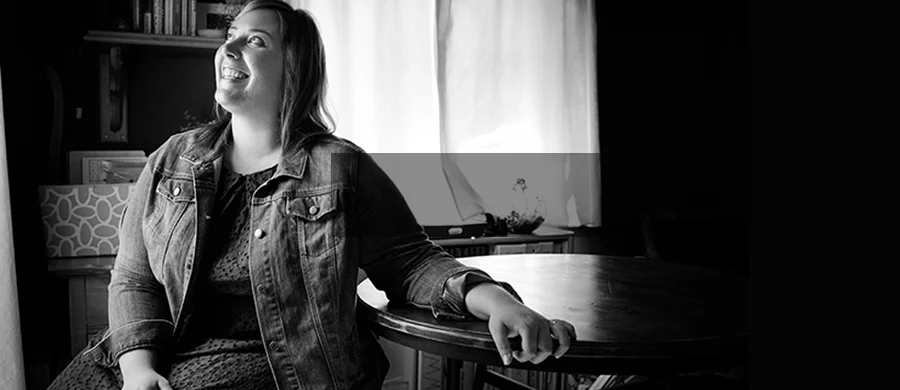The first rule of fight club is you do not talk about fight club. This is hard for you because you think about fight club all the time.
Your girlfriends talk about their kids and their jobs and their husbands and their hair and you try to be a good listener while you think about choking people. You think about what it feels like to hit a choke that is purely on the blood. The words describing that unique form of satisfaction form in your throat. You look for the same kind of opening in the conversation that you do when you wrestle but it never comes because you remember the first rule.
It’s okay. You don’t need to talk about it. You just want to.
One thing that is cool about the word <fight> is that it is likely from an ancient root that has the sense of “comb, pluck out” (wool or hair). However it might also be from the same source as the Latin “pugnus” which means fist.
In Etymonline Mr. Harper uses the word “probably” to describe the presumed lineage between <fight> and the ancient root with the idea of pulling out hair; it’s just a “perhaps” when entertaining the possible derivation of <fight> from the Latin root with the notion of “fist.”
I’m inclined towards the derivation from the ancient root but that’s because when I started fighting I had been growing my hair out for seven years. I was hoping to have a baby but the baby never came so I started fighting instead.
Fighting gave me a reason to cut off my hair. After a couple months of my hair getting torn out during rolls it was time to choose fighting over hair. I cut it all off and tried not to care about it but I did. It felt like letting go of who I thought I would be and being okay with who I am.
Sometimes my husband and I meet people and they ask us if we have a family, which is what people sometimes ask when they want to know if you have kids. I say no to these people, no-we-do-not-have-a-family, because trying to explain to them that we are already a family just confuses them. There’s no space in their brain for the notion that two people who have chosen each other over and over and over again are already whole.
I think the people you fight with and then hug after are your family. I think consensual fighting builds intimacy like nothing else. I have brothers from other mothers and I fight with them most mornings. It’s the single most interesting and empowering thing I have ever done because the foundation is trust.
Jiu-jitsu is called the gentle art because you can play jiu-jitsu in ways you can’t play other forms of fighting. In other forms of fighting if you gouge an eye or break a nose your training partner is not going to be able to keep fighting. There are no strikes in jiu-jitsu; it is submission wrestling, so instead of punching people you are choking them or getting into controlled positions that will break an arm or explode a knee.
Lately I’ve been spending time thinking about when I first started playing jiu-jitsu, maybe because we’ve had some newer people at the gym but also because I’m finally in a place where I don’t feel totally lost at every single moment of every single class.
I like to remiss about when I was new with my friend after class. “Your jiu-jitsu was absolutely horrendous when I met you,” said my friend to me. “Like really really bad,” he said, laughing at the memory.
Sometimes my friend says something and the truth of his words takes root like a tree and my hair stands on end. He’s very rarely wrong, probably because he’s a good wrestler.
My jiu-jitsu really was horrendous, especially if you look at the etymology, because <horrendous> comes from <horror>. <Horror> ultimately comes to us from the Latin horrere “to bristle with fear, shudder.” There is some evidence to suggest (again we see a “perhaps” from Mr. Harper) that <horror> and <hair> share the same ancient root, which makes sense because formerly in English <horror> meant a shivering, like when you have a fever. It also could refer to your hair standing on end.
When I started jiu-jitsu sometimes I would get so scared and overwhelmed I would come home and sit outside and cry and shake. If I’m being honest I still do that but it’s much less frequent.
I had no context for what it meant to wrestle with boys, to move my body in ways I had never moved, to fight, to want to cut my hair off. I remember being so frustrated that my brain would not let go of trying to get better at this weird niche thing because a lot of the time it was almost unbearably hard.
But the grace of jiu-jitsu is that you don’t do it by yourself. Every class you have people right there in the mines alongside you, grinding through the dirt for the shiny understanding, catching glimmers of gold on the good days and just staying alive on the bad. The humanity of it is compelling in spite of the weird.
Ultimately it doesn’t matter if you are horrendous at jiu-jitsu because it’s an opportunity to fight to be better. It doesn’t matter if you cry and shake and your hair stands on end.
What matters is showing up to the eternal fight.

